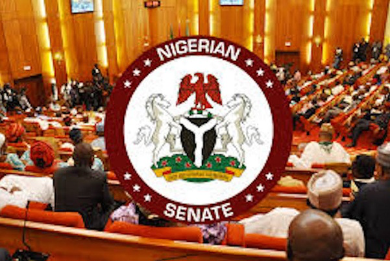Efforts by President Bola Tinubu’s administration to reform Nigeria’s tax system gained traction on Wednesday as the Senate engaged with members of the Presidential Fiscal Policy and Tax Reform Committee. The session, however, was marked by controversy as Senator Ali Ndume, representing Borno South, opposed the process, citing procedural breaches.
The session began with an invitation to the chairman of the Federal Inland Revenue Service (FIRS), Zach Adedeji; the chairman of the committee, Taiwo Oyedele; and the Director-General of the Budget Office, Yakubu Tanimu, to clarify aspects of the proposed tax reform bills. This invitation, facilitated by the Senate Leader Opeyemi Bamidele invoking Senate Order 12(1), was met with resistance from Ndume, who argued that the matter was not listed on the day’s Order Paper.
Ndume criticized the Senate leadership for allowing discussions on a matter of such significance without following due legislative procedures. He emphasized the importance of reflecting the issue on a supplementary Order Paper to maintain transparency and accountability.
“This is a critical issue for Nigerians, and we must handle it with utmost seriousness,” Ndume said. “The Senate cannot afford to manipulate or rush such a sensitive matter without following established procedures.”
Presiding over the session, Senate President Jibrin Barau dismissed Ndume’s objections, stating that the Senate was acting within its rules. He added that the Chamber had no time for unnecessary rhetoric, focusing instead on addressing the nation’s pressing tax concerns.
Following this, the Chamber allowed the presidential committee to present its proposals. In his address, Taiwo Oyedele highlighted the need for reforms, citing Nigeria’s low budgetary capacity and abysmal revenue generation. He pointed out that only about 17% of Nigerians pay taxes, despite growing demands for better infrastructure, education, healthcare, and security.
Oyedele noted several challenges within the tax system, including outdated tax laws, economic constraints, and multiple tax structures that burden citizens without yielding significant revenue. He outlined the proposed bills, which include the Nigerian Tax Bill, Tax Administration Bill, Nigerian Revenue Service Bill, and the Joint Tax Revenue Board Establishment Bill. The reforms also propose a Tax Appeal Tribunal to address disputes between different levels of government.
He assured the Senate that the reforms aim to address disparities in Value Added Tax (VAT) distribution and prevent potential legal conflicts, presenting a political solution to the challenges.
Speaking to journalists after the session, FIRS Chairman Zach Adedeji emphasized the reforms’ goal to stimulate economic growth. “President Tinubu has committed to a fair tax system—one that does not tax poverty, seeds, or investments, but focuses on taxing returns and prosperity,” Adedeji stated.
He added that while the committee had clarified the intent of the reforms, the responsibility now lies with the Senate to represent the interests of Nigerians effectively.
